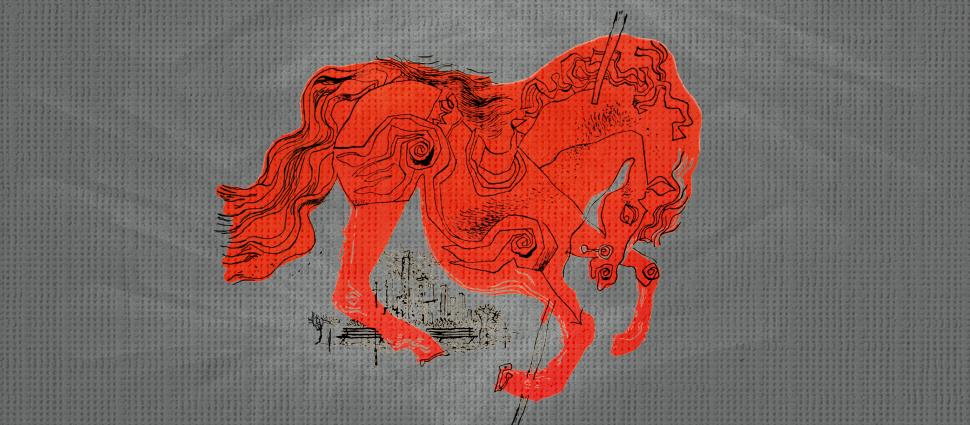Salinger and the Incarnation: A Reminder of Hope from an Unlikely Source

One benefit of the religious calendar is that we give a whole month to celebrate the wonder of the incarnation. One disadvantage of the religious calendar is that we give only a month to celebrate the wonder of the incarnation. That the Word took flesh ought to move our hearts and fill our minds with an overwhelming sense of wonder each day. The incarnation of the Son of God is the climactic event in redemptive history when God broke into space and time and dwelt among us in the flesh. In a time when it seemed as though God was silent and all hope was gone, God was actively preparing the world for the coming of His Son in the fullness of times. After sin entered this world mankind experienced shame and hopelessness. Yet, God revealed the promise of a Redeemer who would come and reverse the curse and restore hope to a fallen humanity.
Few people in the last century could describe, with eloquent precision, humanity’s hopeless condition better than that of J. D. Salinger (1919-2010). Salinger is most well remembered for his book The Catcher in the Rye. He did not write stories in which one would expect to be reminded of the Incarnation; nor is his a name that which comes to mind when thinking upon Christ’s work of deliverance. However, when we read his writings--together with David Shields' and Shane Salerno's new biography, Salinger--our eyes are opened in fresh ways to the depths of evil and hopelessness in this world. Salinger served in the 4th Infantry Division during World War II, storming Utah Beach on D-Day, as well as experienced combat in the Battle of Hürtgen Forest and the Battle of the Bulge. Also, a result ofserving in the counter-intelligence division of the 12th Infantry Regiment he was one of the first to walk upon Kaufering IV--a concentration camp. In just under a year most of the men he served with died in combat. Reading the descriptions of what he experienced and witnessed in these battles (and at this concentration camp) are difficult to process, even with a biblical framework for evil and suffering. Living it, he could not aqequately process it. The war changed Salinger. He saw evil and suffering up close. And it all seemed hopeless. After learning about Salinger’s life, Holden Caulfield started began to make sense to me. Reading Salinger helped me feel the hopelessness of a world where evil is present. But Salinger offers no hope or solution for what he experienced, nor does he offer a solution in his writing.
In the context of this reading, I was reminded of a promise found in the prophecy of Micah. God’s people found themselves in a dire and seemingly hopeless situation. Yet, the prophet Micah announces that Yahweh will deliver them (Micah 2:12-13). He uses both shepherd (v. 12) and military (v.13) language. The military language came to mind while reading about Salinger’s life experiences. It is fascinating that God implements military imagery to describe his work of deliverance. I do not know what war is like. It is often said that war is hell. As a civilian, I cannot begin to imagine the devastating nature of war. But I know that war isn’t cute, nor is it sentimental. And neither is the manger for that matter. Micah announces that One will break open the way and will go up before his people (v.12). Christ is "The Breaker." He is the King who delivers his people from their sins and all their enemies. The Messiah embarks upon a rescue mission that involved his taking on flesh as part of the strategic plan.
This is the military image of the incarnation. God the Son breaks through into this world of rebellion and hopelessness. He takes captivity captive and leads his people to victory and triumph through his death and resurrection (Ephesians 4:8). Facing hostility far greater than that faced on the beaches of Normandy, Christ resolutely marched toward Calvary to give his body to be a sacrifice in order to deliver and bring hope to otherwise hopeless sinners. Praise be to God for sending his Son to break in and to storm this world in order to bring hope and peace!





